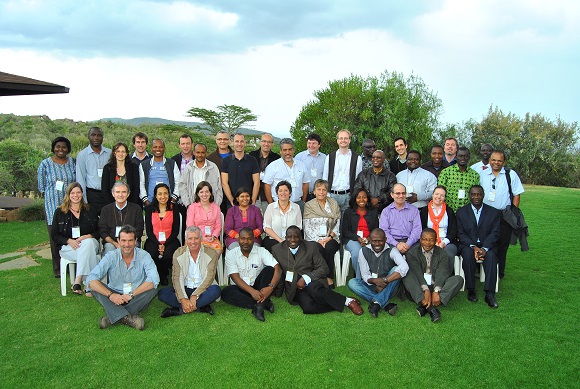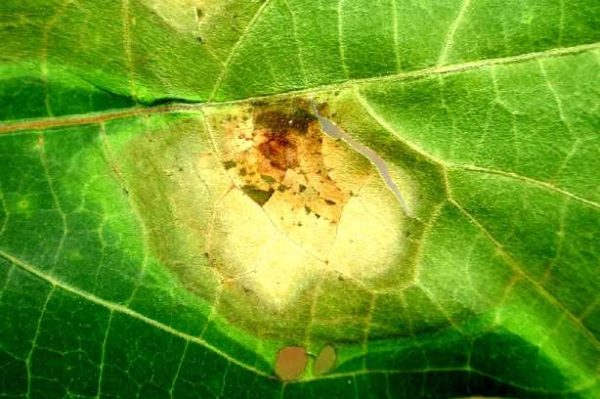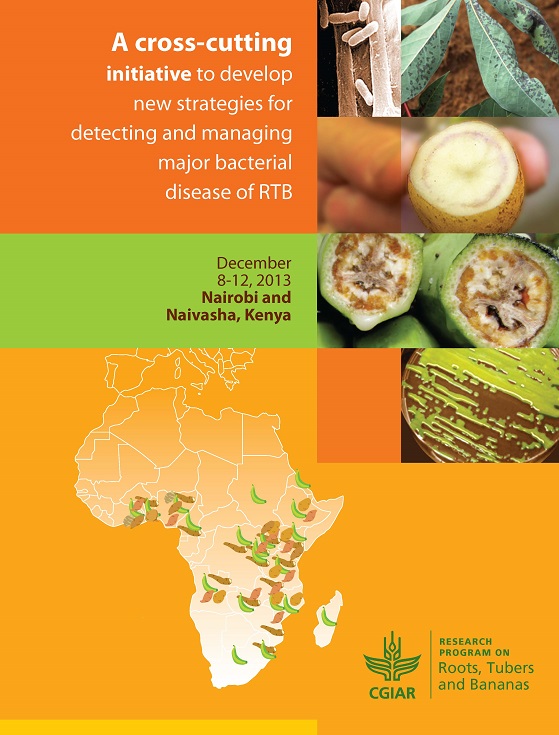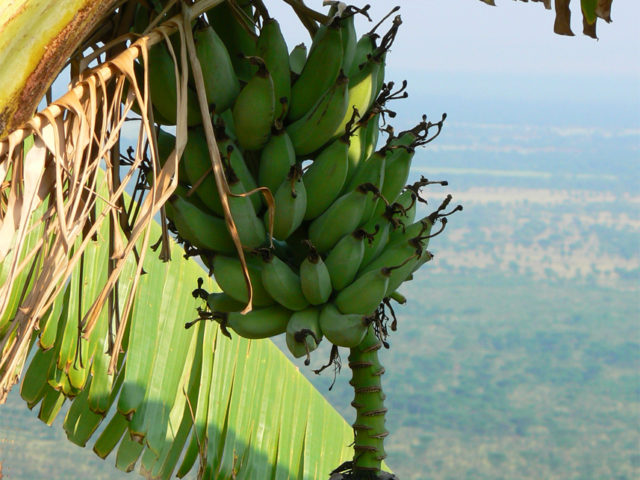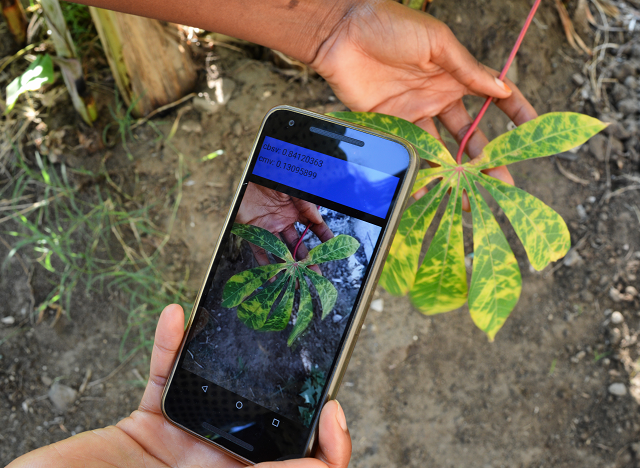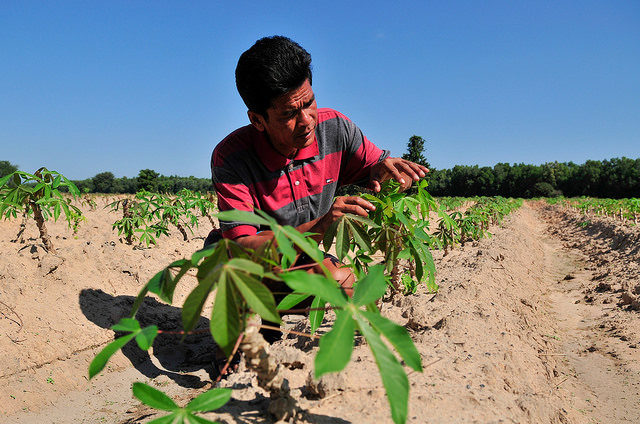Bacterial diseases that attack RTB crops pose serious threats to the food security and livelihoods of smallholders in many parts the world. In an effort to promote knowledge sharing and collaborative responses to those threats, RTB is supporting a Bacterial Disease (BD) Initiative, which convened its first meeting of international experts in Kenya on December 8-12, 2013.
The workshop, called “Cross-cutting initiative to develop new strategies for detecting and managing major bacterial disease of RTB,” included presentations and discussion of innovative strategies to control bacterial diseases that affect RTB crops. It brought together 40 experts from 19 countries: researchers from the five RTB centers, IRD and seven other agricultural research institutions as well as representatives of 14 national agricultural research systems.
The first day was dedicated to establishing scientific connections, with eleven speakers presenting recent findings from basic and applied science in their respective areas. The subjects included crop improvement through genomic and transgenic approaches, disease diagnostics, epidemic surveillance, plant bacteriome, effectome, TALome, bioinformatics, plant clinics and capacity building for improving bacterial disease control.
Presentations were followed by discussions guided by chairmen and chairwomen on different aspects of bacterial diseases, such as tools to study bacterial etiology/epidemiology, genome editing, diagnostic, biotech platforms, translational research. On the second and third days, participants focused on sharing ideas and working from ideas to concept notes. The goal was for the different working groups to identify what could be done across crops and pathogens and discuss new approaches that should be developed to combat RTB bacterial diseases.
The working groups elaborated outlines for a future proposal that considers the different aspects of RTB crops, bacterial diseases and the potential for partnerships and capacity building. Suggested areas of collaboration included global surveillance of RTB pathogens, how pathogens can inform breeding, durable management of bacterial diseases in vegetatively propagated crops, and innovative strategies to control bacterial diseases and deliver sustainable solutions to farmers. The two days of discussion and feedback on projects and concept notes resulted in constructive action points and project opportunities. Discussions also covered the structure of the BDI team and future actions and tasks to be implemented.
